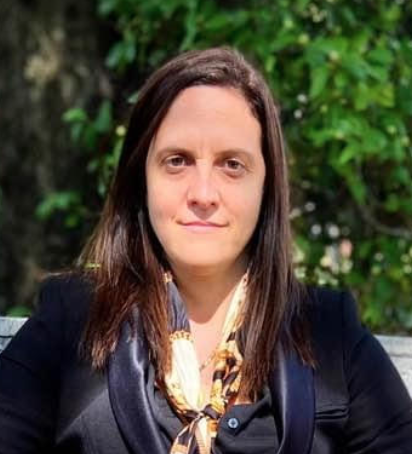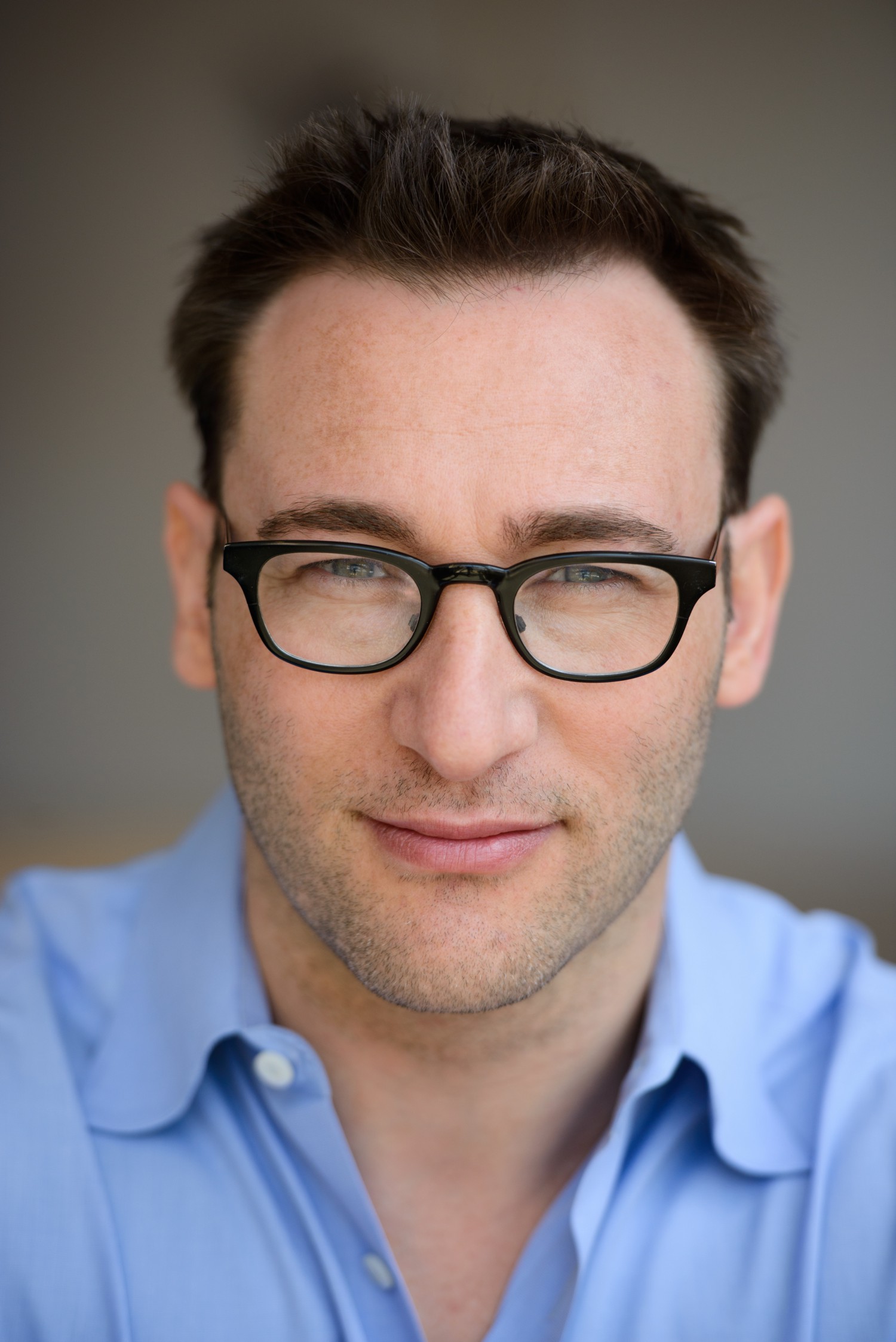My interview with Simon Sinek, “unshakable optimist” and global bestselling author of ‘Start With Why’, ‘Leaders Eat Last’ and ‘Together is Better’
Nathalie Virem: Why did you decide to re-launch your New York Times and Wall Street Journal bestseller Leaders Eat Last? What advice do you have for Millennials in this context?
Simon Sinek: Leaders Eat Last came out in 2014, and with growing conversations around new generations in the workplace, we thought it would be nice to go back to the data and update it. As I started doing research, I learned even more because there’ve been more studies since the book was first released — I was just astonished. What’s more, regardless of where I go, no matter the organization’s size of industry, managers are looking for guidance on how to lead Millennials — and Millennials are looking for ways to make an impact and find fulfillment in their work. I think it’s an important topic that’s getting more and more attention, so I wanted to contribute to the discussion.
Nathalie Virem: Parenting digital natives can prove challenging. With cyber-bullying and sensitive online content, what is your take on it?
Simon Sinek: I put a new section in the appendix of the revised edition of Leaders Eat Last, including some parenting tips for people struggling with their kids and social media, cell phones, etc. I’ll give you a very scary statistic from the book: The demographic with the highest rate increase of suicide are girls 10 to 15 years old. The number of girls killing themselves has tripled in the past 15 years, which I find absolutely horrifying.
Nathalie Virem: What tips could you give parents for their children to spend less time online and ultimately protect them more?
Simon Sinek: A lot of parents struggle with when to give their kid a cell phone. Just like you and I sign a contract when getting a phone, some parents are having their kids do the same. We’ve heard good examples: If you want a smartphone and you are 12 or 15 years old, you have to agree to certain terms. Like you may never use the phone in your bedroom or have it at a dinner table. When your friends come over, everybody relinquishes their phones and keeps them in a bowl and so you guys can hang out with each other.
If your child agrees to these terms and signs the contract, they can have a smartphone. If they violate their terms, then they lose it for a week. Make the agreement right before they get one as opposed to trying to come back at them after they own it.

Nathalie Virem: Do you have some advice for companies leading Millennials?
Simon Sinek: In terms of companies leading Millennials, one of the things we suggest is leaning in and leveraging their strengths. I mean they’ve grown up in social media and are exceptionally good at personal branding. They understand it inherently and naturally. So put them in those kinds of jobs if they are interested. The rest of us had to learn it.
Nathalie Virem: Changing an organization’s culture is one of the most difficult leadership challenges. Why do you think there is an awakening about the importance of culture in today’s corporate world? How does it affect Millennials?
Simon Sinek: I don’t know that it’s an awakening. Any leader of an organization knows culture is important. The question is whether they’re going to do something about it. The problem with culture is it’s all about people. Like anything to do with people, we can’t just rely on turning a switch and having everything change. Businesses tend to use drastic methods to fix their problems. For example, with mass layoffs, the very next day they can tell how much money they saved. Leadership is about taking care of your people, not about your numbers.
Nathalie Virem: So what is the real meaning of culture in your opinion?
Simon Sinek: Culture is about consistency; it is like going to the gym every day or eating healthy.
I can’t tell you how long it takes to get healthy if you start eating healthy. I can’t tell you exactly what day you start getting into shape when you work out. You have to maintain; you have to keep the consistency of it. If you stop, it starts to break apart as well. You start to get unhealthy, again. That’s what culture is like. When you commit to a good practice of instilling values and reinforcing values, rewarding and recognizing values, your culture will get healthy. And once it is healthy, you have to keep it that way.
Nathalie Virem: How much does this resonate with companies?
Simon Sinek: Companies very often don’t like doing it because it’s an ongoing process. You can’t turn a switch, hire a consultancy, hire a change manager… You can’t have an offsite company fix your culture; it just doesn’t work that way.
You can get advice from an outside consultant, and they can come in and teach the techniques, and what to do, but at the end of the day, you are going to have to do it yourself. The outside person cannot take responsibility for your actions.

Nathalie Virem: What advice do you have for organizations and leaders to build a successful and sustainable company culture?
You have to have clearly articulated values and a clearly articulated cause or Why. We have to know Why the company exists beyond the product, beyond making money. Money is a result. It is fuel to keep the company alive but it’s not the purpose; it’s not what gives our lives meaning. It comes at the end of the things we do or the things we sell. It’s not the reason we show up.
Nathalie Virem: So why do you think most get wrong?
What so many organizations don’t realize is that values are not aspirational. They are not things you just come up with around a conference table and write on the wall, like “honesty,” “innovation” and “integrity.” If you feel the need to write “honesty,” you have a bigger problem.
So many companies talk about taking care of people and “integrity,” but then use mass layoffs at the end of the year. That’s not caring for people. Or, they may have an employee who is a high performer but destructive and very toxic to the rest of the company culture. Yet, they won’t discipline or let go of them because their performance is “so good.” So the actions have to align with the words on the wall. It’s not good enough to simply write them down; you actually have to uphold them.
Nathalie Virem: In a nutshell, how can Thrive readers find their Why?
Simon Sinek: One technique the book, Start With Why, covers is understanding your peaks and valleys, your highs and lows throughout your career. The times when everything went great and the times when you struggled — you actually clock those and can eventually find the patterns. The more specific you can be about the stories, the easier it is to find a pattern and find your Why. In addition to the book, I helped develop a step-by-step digital guide to help individuals find their Why. It is on our website at www.startwithwhy.com
Nathalie Virem: What are some of your upcoming projects and ventures?
Simon Sinek: Start With Why came out in 2009, and back then there was no discussion about Why. I’m proud I contributed to that discussion. Now, eight years later, the biggest complaint I get about this book is, “Great! I totally buy into it, but how do I do it? How do I find my Why?”
My team and I came together, and have taken all the tools we’ve developed and perfected over the years. We put it into Find Your Why, a new book coming out in September 2017, so that individuals, divisions and teams inside big or small companies can go about finding their own Why — without having to look to a high-price consultancy or something you can do yourself. It’s a simple process I’m really excited about.
___________________________________________________________________
Simon Sinek, Unshakable Optimist and global bestselling author of Start With Why, Leaders Eat Last and Together is Better. His newest title, Find Your Why comes out in September 2017. To learn more and get inspired, visit www.startwithwhy.com
Originally published at medium.com


